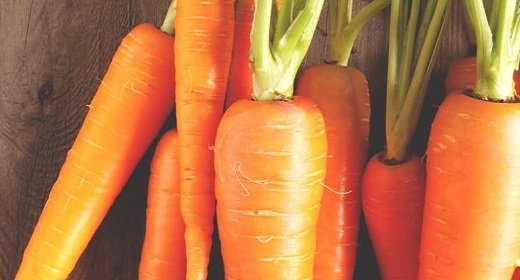by Ocean Robbins: Vitamin B12 is a hot topic in the vegan community since it’s one of the few nutrients hard to obtain on an entirely plant-based diet…

That doesn’t mean meat-eaters should gloat, though: many omnivores suffer from B12 deficiency as well. So what is B12, why is it important for health, and how do you know if you’re getting enough?
Picture a no-holds-barred diet debate. The topic: “Is a vegan diet healthy for humans?” The anti-vegan debater utters two syllables and drops the mic, confident of victory. What are those syllables? “B” and “12.”
Here’s the deal: B12 is an essential vitamin, crucial for many bodily functions. And many people can’t get enough B12 from an exclusively plant-based diet without some form of supplementation. Therefore, the anti-vegan concludes, plant-based diets are unnatural and unhealthy. Case closed, and let’s break out the ribeyes.
Well, not so fast. While it’s true that B12 is an essential nutrient, and it’s hard to get enough from plants, there’s a lot more to the story. Many non-vegans are also low on B12, for a variety of reasons having to do with individual health issues, as well as modern agricultural and sanitation practices. And many people actually host bacteria that make B12 in their digestive tracts.
No matter what your diet, this article tells you what you need to know about B12. You’ll find out what it is, where it comes from, why it’s so important for your health, how much you need, and where to find the healthiest sources.
What Is Vitamin B12?
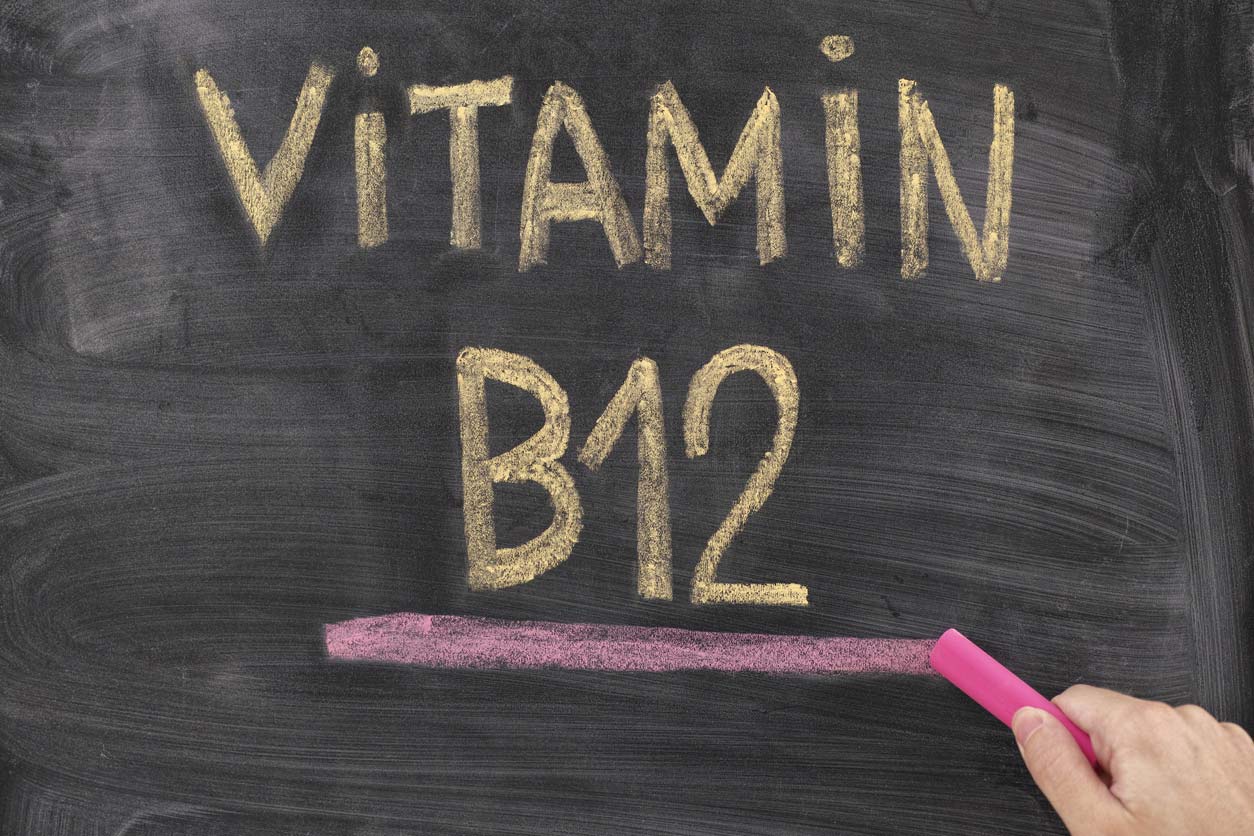
Of all the known vitamins, vitamin B12 is the largest and has the most complex structure. (Think of it as the vitamin equivalent of book five of the Harry Potter series.) Like all the other B vitamins, B12 is water-soluble. This means that your body uses what it needs and excretes the rest through your urine. While some people can store vitamin B12 in their bodies for a long time (up to four years), it’s important to get a regular supply in order to prevent deficiency.
Vitamin B12 contains the metallic chemical element cobalt, which is why B12 compounds are also known as cobalamins. (It turns out that Wolverine isn’t the only one with a partly metallic body!) Your body requires B12 to form red blood cells, to keep your brain functioning well, and to synthesize DNA. B12 also plays an essential role in folate (vitamin B9) metabolism, which is a critical nutrient for reproduction. In other words, no B12, no life.
B12 Benefits for Your Health
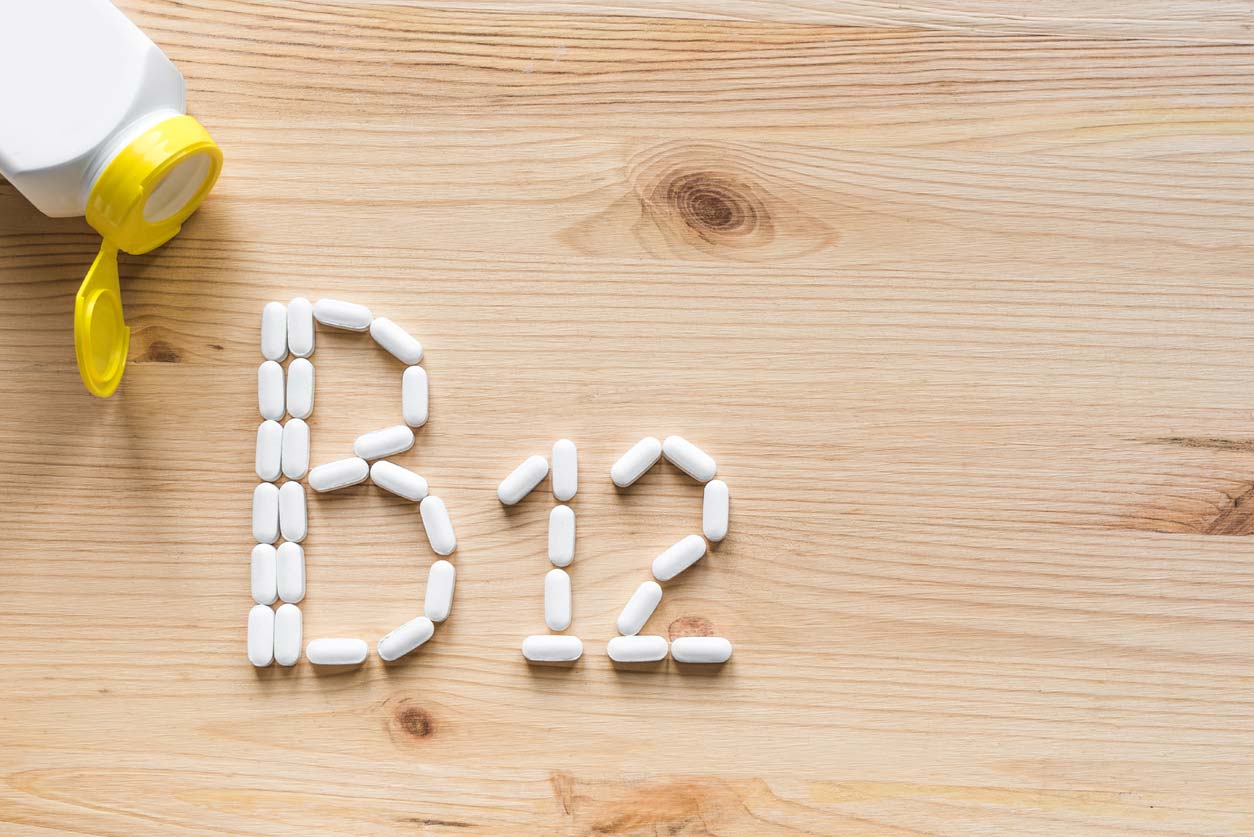
Vitamin B12 is critically important for a lot of reasons. It contributes to a vast array of processes that keep your body running smoothly and that support your overall health. Here are just a few crucial benefits of B12.
1. Helps fight depression.
Getting enough vitamin B12 supports brain health and positive mood. Observational studies have found that approximately one-third of patients who are admitted for clinical treatment of depression are deficient in vitamin B12.
2. Protects against cardiovascular disease.
Vitamin B12 helps regulate levels of homocysteine, a byproduct of protein metabolism. High levels of homocysteine have been linked to a higher risk of heart disease, stroke, and dementia. Homocysteine levels increase when B12 is deficient and decrease when there is enough B12 in the body. (Think of B12 and homocysteine on opposite sides of a see-saw.) Many studies conducted between 1999-2003 found that vegans who were not supplementing with vitamin B12 had unusually high levels of homocysteine, whereas those who did supplement had homocysteine levels that fell within a normal range.
3. Protects against eye disease and disorders.
Vitamin B12’s ability to bring down homocysteine levels benefits not only your cardiovascular system and your brain but your eyes as well. Elevated homocysteine levels appear to increase the risk of a number of eye-related diseases, including (warning: list of medical jargon coming up) retinopathy, cataracts, optic atrophy, retinal vessel atherosclerosis, and pseudoexfoliative glaucoma maculopathy (I don’t recommend trying to say this five times fast).
And that’s not all. Age-related macular degeneration is associated with both high homocysteine levels and low levels of vitamin B12. The good news is that vitamin B12 and folate supplementation can be helpful in helping elderly people reduce the high homocysteine levels that can lead to eye disease. And remarkably, the topical application of vitamin B12 along with citicoline — a naturally-occurring brain chemical sometimes used in supplements — to the eyes of patients suffering from diabetic retinopathy actually regrew damaged nerves, improving their corneal nerve health. Now that’s some real-life magic right there!
4. Protects against neural tube defects in pregnancy.
Neural tube defects are serious birth defects that can change the function or shape of the spinal cord and brain. While we most often hear about the importance of folate for preventing neural tube defects, vitamin B12 also plays a crucial role. Fetuses of mothers with low levels of vitamin B12 are at a higher risk for neural tube defects, including spina bifida and anencephaly, among others.
5. Helps with red blood cell formation.
Vitamin B12 also helps to make sure you have enough red blood cells in circulation. In turn, it supports oxygen availability in your body and may improve athletic performance. A 2020 study published in the journal Nutrients examined 1,131 blood samples collected from 243 track and field athletes over six years and compared the results to athletic performance. The researchers concluded that the ideal athletic performance was achieved when blood levels of B12 were in the range of 400-700 pg/mL (that’s picograms per milliliter. And in case you’ve never heard of a picogram before, it’s one trillionth of a gram).
6. Has a protective effect on DNA.
Vitamin B12 has antioxidant properties, which is one of the reasons it can both protect your cells from damage caused by free radicals and reduce your cancer risk. If Jeff Goldblum had gotten enough B12, I suspect The Fly would have been a very different (and much less scary) movie.
Having enough vitamin B12 in your system can also help protect you against the toxicity of some drugs. One 2014 study, for example, found that vitamin B12 was protective against the known free radical damage caused by Paclitaxel, an anticancer drug that leads to irreversible cell injury. And a 2018 study found that vitamin B12 reduced toxicity from hydrochlorothiazide, a diuretic drug used to treat high blood pressure and fluid-related swelling.
Where Does Vitamin B12 Come From?

There are many misconceptions about B12, but the truth is that this critical vitamin does not actually come from meat. Rather, B12 is made only by bacteria and single-celled organisms. And where, pray tell, are these B12 producing microorganisms found? In soil, and in the small intestine of animals, including humans.
Before the advent of modern sterilization practices, you could get B12 pretty much everywhere, including by eating vegetables that had a teeny bit of dirt left on them. Or by drinking well or river water, or just by working in a garden.
These days, though, most of us drink chlorinated water, which kills the B12-producing bacteria (as well, of course, as the nasty pathogens that cause cholera, typhoid, and dysentery). Furthermore, much of our farmland today is sterile since it’s fed with synthetic fertilizers instead of decaying plant and animal matter in which B12 bacteria can survive.
Meanwhile, our society has developed a collective fear of dirt and germs. While there are undeniable public health benefits to our anti-microbial efforts, there are serious negative side effects as well, including a lack of bioavailable B12 in our environment.
And remember our anti-vegan debater crowing about the fact that vegans have to supplement with B12, and how it “proves” that their diet is inherently unhealthy and unnatural? Well, the sad truth is that factory-farmed animals are also B12 deficient, so they receive supplementation in their feed. This means that no matter where you’re getting your B12, it’s likely to depend at least in part on supplementation. The real question is whether you supplement directly or take it through a middleman, er, middle-cow or middle-chicken.
How Much Vitamin B12 Do You Need?
It’s not just a matter of how much B12 you take in; it’s also how much you can use. The vitamin must be bioavailable. And you must be able to absorb and transport it efficiently as well. For instance, optimal B12 absorption can only be achieved when there’s enough intrinsic factor — a transporter protein for B12 — in the digestive system.
And with all of the factors in our world today that can throw off our gut microbiome, it’s not just vegans or vegetarians who are at risk for B12 deficiency. In fact, according to one study of 3,000 people conducted a while back by researchers at Tufts University, up to 39% of the US population could have low B12 levels. That’s why it’s crucial to understand how to get vitamin B12 from dietary and/or supplemental sources, and how much you need in order to maintain optimal levels.
Below are the recommended daily needs for vitamin B12, based on established Adequate Intake and Recommended Dietary Allowances:
- 0-6 months: 0.4 mcg (micrograms, or millionths of a gram)
- 7-12 months: 0.5 mcg
- 1-3 years: 0.9 mg
- 4-8 years: 1.2 mcg
- 9-13 years: 1.8 mcg
- 14+ years: 2.4 mcg
- Pregnancy: 2.6 mcg
- Lactation: 2.8 mcg
As you can see, the recommended intake varies depending on age, pregnancy status, and diet. But minimum daily needs data can be misleading. The truth is that if your absorption is suboptimal for any reason, which is increasingly the case as you grow older, your actual needs might be higher.
B12 Deficiency
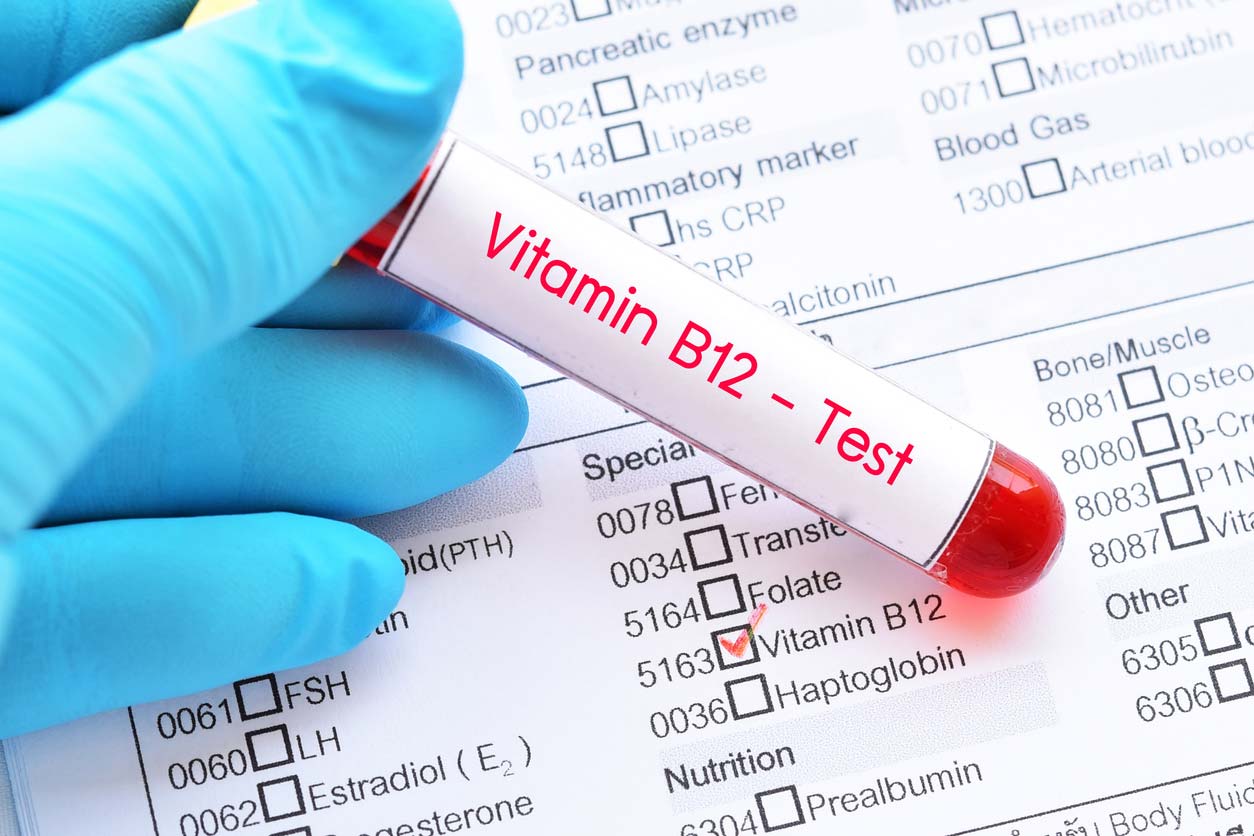
If you don’t get enough vitamin B12, either because of inadequate intake, poor absorption, and/or inability to make your own in tandem with the bacteria in your gut, you’re at risk of a B12 deficiency.
What are some of the more common symptoms of B12 deficiency? They can include fatigue, weakness, constipation, loss of appetite, weight loss, tingling of hands and feet, sore mouth or tongue, difficulty balancing, confusion, and poor memory. In infants, it can look like failure to thrive, movement disorders, and developmental delays.
Of course, the best way to know how efficient your body is at producing — and absorbing — vitamin B12 is to have your blood levels tested. A vitamin B12 test can be done at the same time as other general labs at a wellness check-up. But because it’s not a standard test, you will have to request it in most cases. It typically costs $30-50 for such a test.
In western medicine today, B12 deficiency is generally suspected when blood levels of B12 fall below 200 pg/mL. But research suggests that levels of at least 400 pg/mL are closer to optimal.
Who Is Most At Risk for Vitamin B12 Deficiency?

While vitamin B12 deficiency can affect anyone, certain groups are at higher risk.
The most common cause of B12 deficiency is poor absorption, which can result from conditions like irritable bowel disease, Celiac disease, AIDS, or bacterial overgrowth in the small intestine. The elderly population is also at heightened risk because B12 absorption worsens with age.
People who have an MTHFR genetic mutation may also be more prone to B12 deficiency. This is because having this particular mutation inhibits the way your body can process B vitamins, including folate and B12.
Additionally, people who follow a diet that excludes animal products are at a higher risk. This is because, for many people, the most abundant food sources of B12 are animal products.
Vitamin B12 Sources & Absorption
Plant-based eaters generally can’t remedy a B12 deficiency simply by more veggies. While a whole foods, plant-based diet can provide optimal levels of almost all of the nutrients you need, vitamin B12 is one of the only ones that isn’t easily sourced from plants.
The dietary sources of vitamin B12 include:
- Most animal products (for those who eat them), including fish, beef, poultry, dairy products, and eggs
- Algae, seaweed, and some mushrooms
- Some fermented foods like tempeh, kimchi, sauerkraut, and miso
- Fortified foods like certain plant-based milks and yogurts, some cereals, nutritional yeast, and tofu
Some root veggies, like carrots, potatoes, and turnips, were traditionally considered to be decent sources of vitamin B12 due to the healthy soil they were once grown in. However, with so much food grown in relatively “dead” and degraded soils, and with most of us today cleaning our produce thoroughly before we eat it, these foods are no longer reliable sources of B12.
While they may provide some vitamin B12, and it’s also possible that bacteria in your gut are taking care of your needs completely, B12 is too important to leave to chance. If you follow a plant-based diet, it’s important to include a B12 supplement to meet your needs.
Vitamin B12 Supplements

Taking a B12 dietary supplement is necessary for plant-based eaters. But considering how many omnivores are deficient in it, it might be advisable for other people, too. Vegan B12 is easy to find and is one of the least expensive supplements on the market.
But there are several different forms of B12 supplements available. So which one is best? Believe it or not, some natural health advocates get remarkably heated on this topic.
Cyanocobalamin vs Methylcobalamin
The most widely used form is cyanocobalamin, mainly because it’s cheaper and more stable to manufacture than other forms. When you ingest cyanocobalamin, your body converts it into one of the two active forms of vitamin B12: methylcobalamin or adenosylcobalamin. And some studies indicate that cyanocobalamin may be better absorbed, so score one for team cyanocobalamin.
But the next most popular form is methylcobalamin, which is the natural form (the kind found in food sources), whereas cyanocobalamin is synthetic. And some studies have found that, compared to methylcobalamin, more cyanocobalamin is excreted through urine, suggesting that methylcobalamin may be retained better.
Some people also rail against cyanocobalamin by explaining that it is made with cyanide (a poisonous substance). And it’s true that cyanocobalamin does include a cyanide molecule. But the good news is that even at a high dose, you’ll still be getting a thousand times less cyanide than is toxic. And the tiny amount of cyanide is excreted in the urine. So while this sounds terrible, it probably isn’t cause for alarm. Even if you don’t have the constitution of Rasputin, you will not get poisoned.
That said, if the cyanide factor makes you want to opt for methylcobalamin, I won’t blame you. Overall, available research around vitamin B12 suggests that the differences in bioavailability between these two forms may not be enough to suggest one over the other for most people. Instead, factors that affect the absorption of vitamin B12, like age and genetics, may be more influential than the form of the supplement itself.
Supplement Amounts
How much vitamin B12 should you take in the form of a supplement? Generally speaking, it’s best to get your levels tested to determine your baseline and adjust dosages accordingly.
The registered dietitians at VeganHealth.org, who have extensively researched vitamin B12 on a vegan diet, put together a helpful table with recommended regimens for supplementing vitamin B12. You can see that table here.
Vitamin B12 injections are another option. Such injections are most often used for high-risk people who have absorption issues, and for people who are already vitamin B12 deficient. The advantage of this method is that it can quickly correct low levels of B12. Injections generally contain high levels of cyanocobalamin and can either be self-administered or given by a physician.
Vitamin B12 Risks and Interactions
In general, high doses of B12 are considered safe with a low risk of toxicity, and there is no established upper tolerable limit for this nutrient. If you’re taking an oral supplement, there’s no known risk with taking a reasonable amount daily, even if you haven’t had your blood levels checked.
However, there may be some risks to B12 injections, which is why they should not, in most cases, be undertaken without support from a qualified healthcare professional. If you’re allergic to cyanocobalamin or cobalt, have low potassium levels (hypokalemia), kidney disease, a rare blood disorder called polycythemia vera, the eye disease Leber’s disease, or nutrient deficiencies like iron or folic acid, B12 injections are not recommended due to higher risk for interactions.
Vitamin B12: Essential and Non-Negotiable
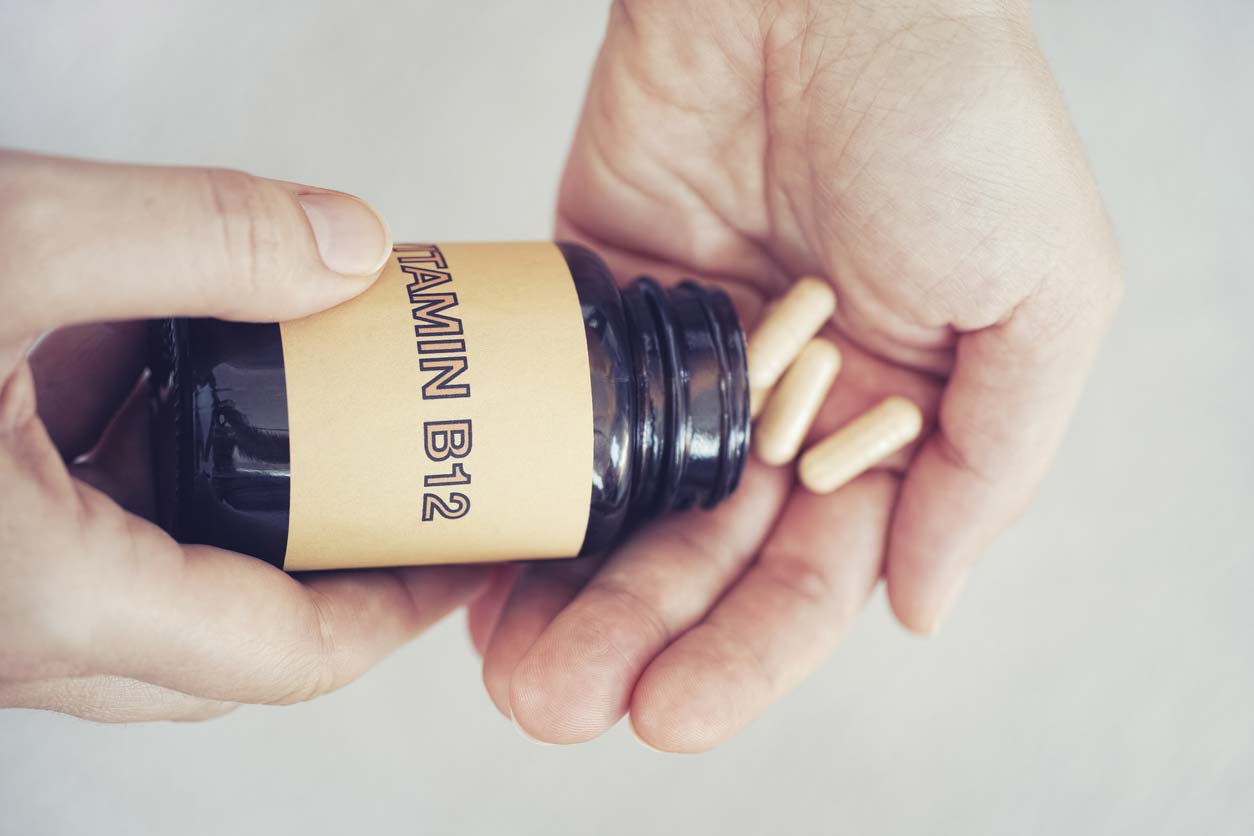
Vitamin B12 is an essential vitamin that’s necessary for good health. Plant-based eaters and older people are at increased risk of deficiency. Fortunately, even if you opt to forego all animal products, you can get all the B12 you need, and all the benefits from this versatile and critical nutrient, with a simple and affordable supplement.
FROM THE EDITOR OF AWAKEN.COM –
We are proud to announce a new partnership with Food Revolution to bring our readers Summits, Seminars and Masterclasses on health, nutrition and Earth-Conscious living.











